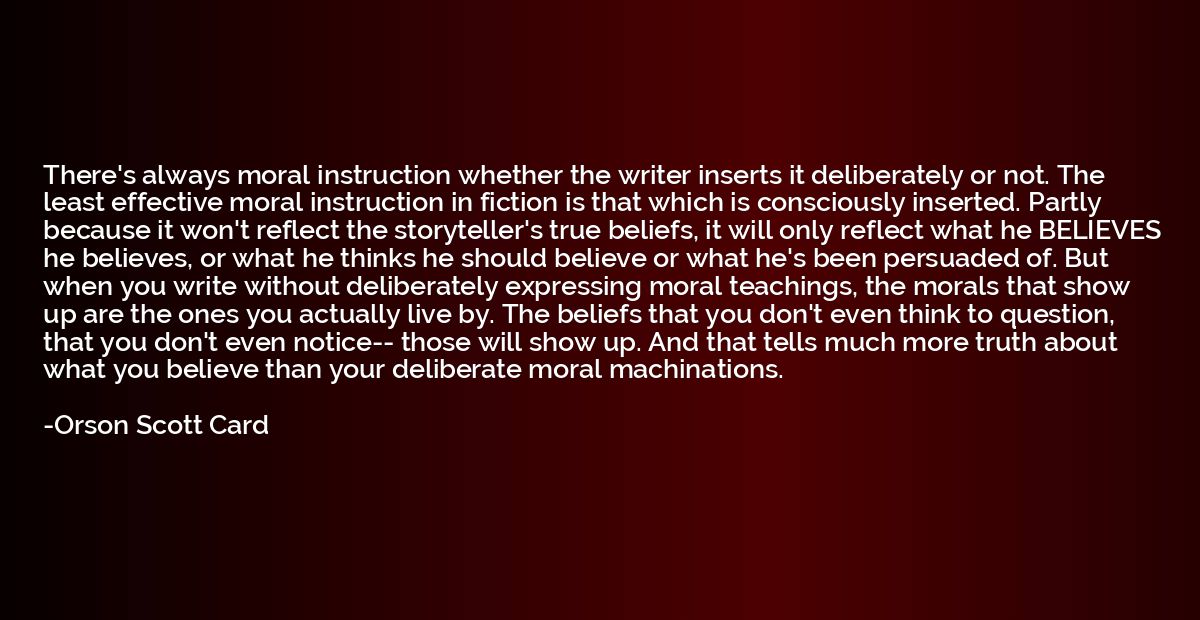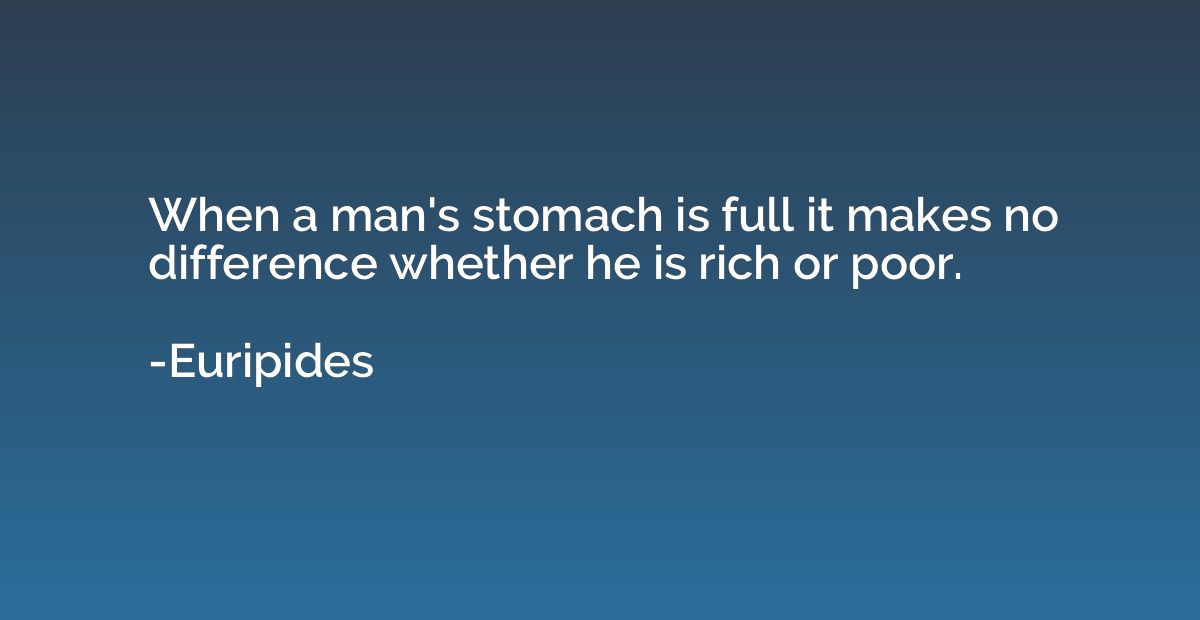Quote by Orson Scott Card
There's always moral instruction whether the writer inserts it deliberately or not. The least effective moral instruction in fiction is that which is consciously inserted. Partly because it won't reflect the storyteller's true beliefs, it will only reflect what he BELIEVES he believes, or what he thinks he should believe or what he's been persuaded of. But when you write without deliberately expressing moral teachings, the morals that show up are the ones you actually live by. The beliefs that you don't even think to question, that you don't even notice-- those will show up. And that tells much more truth about what you believe than your deliberate moral machinations.

Summary
This quote suggests that moral instruction exists in all forms of writing, whether intentionally inserted by the writer or not. The author argues that deliberately incorporating moral teachings in fiction may not accurately reflect the writer's true beliefs, but rather what they think they should believe or have been influenced to believe. On the other hand, writing without consciously expressing moral teachings allows the writer's lived morals and unquestioned beliefs to naturally emerge. According to the quote, these unnoticeable and unquestioned beliefs offer a more genuine representation of the author's true beliefs and ultimately reveal a deeper truth about their inner convictions.














